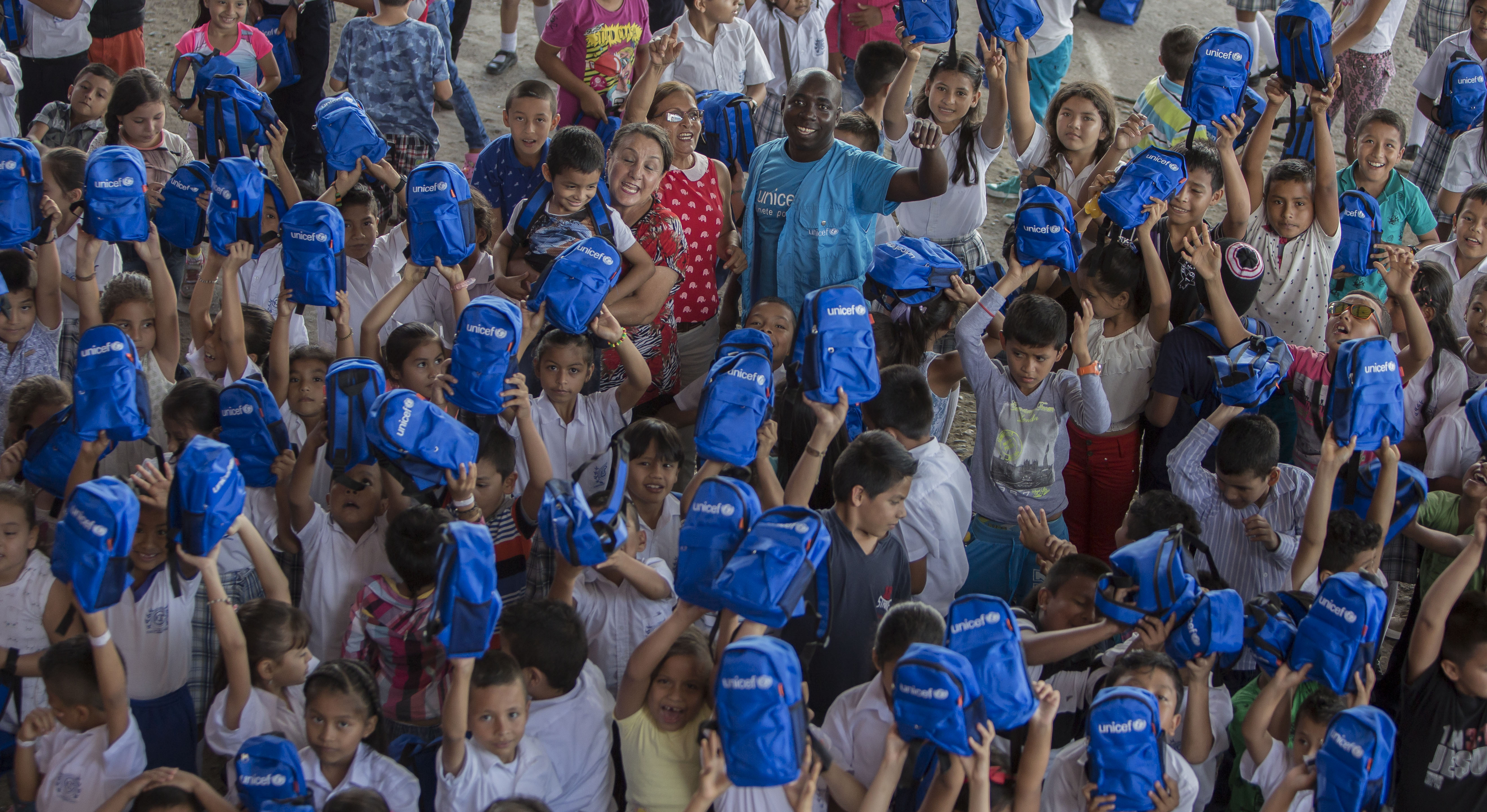

Data Science + AI
Artificial Intelligence for emergency preparedness
Colombia is beset by regular natural disasters as well as humanitarian challenges emerging from the current peace-building process along with the existence of new forms of armed violence and the effects of mixed migratory influx from Venezuela. Under this scenario, children constitute the most directly affected population group.
In order to better understand the magnitude, trends, and associated factors of these phenomena, major stakeholders in protecting children's rights require innovative tools to take advantage of different data sources for situational awareness and programmatic planning. UNICEF´s country Office in Colombia with the support of the Venture Fund, and the engagement of local stakeholders, is developing a platform that displays the location of all public and private schools in the country, as well as other traits such as internet connectivity, electricity, number of students, etc. During the first year and a half of the project, the location of all schools and connectivity data have been registered and updated on an open-source visualization tool (http://school-mapping.azurewebsites.net/ ) showing that most schools in Colombia don’t have an internet connection (46,8%) and the ones that do, are below the 2G threshold.
In the health sector, UNICEF is also developing - with major, international academic collaborators - a generic model for vector-borne disease diffusion, focused first on Zika, with high potential to be applied to Chikungunya, Dengue y Malaria. Key government entities such as the Ministry of Health, data providers, and technical partners are closely engaged in the work. These efforts have been catalytic to ignite other initiatives on data analytics in Colombia. As of today, UNICEF Colombia is exploring how to use Big Data (i.e. massive amounts of administrative records) to predict child protection violations, characterize population mobility in the face of major natural disasters, and understand future migration patterns.
Progress made so far has been possible given the engagement of diverse actors within and outside UNICEF and the adherence to an approach that prioritizes the needs and interests of local stakeholders in Colombia. UNICEF has been successful in strengthening existing local capacities.